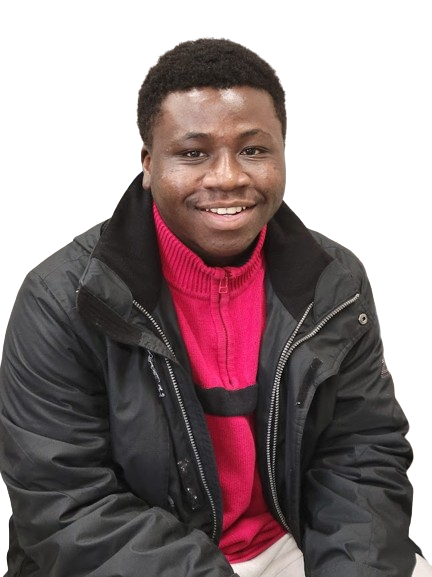Transcript Summary
Introduction and Background:
The conversation began with the interviewer (student) sharing their background as an international student from Ghana and a junior studying neuroscience at Lawrence University. The physician (interviewee) reflected on Lawrence University, praising the small, tight-knit academic environment that fosters intelligent and driven graduates, noting that it remains somewhat underrecognized.
Journey to Medicine and Surgery:
The physician shared his inspiration for entering medicine, rooted in a strong scientific background and maternal encouragement to pursue a meaningful career. After attending Lawrence, he completed majors in chemistry and biology, which helped prepare him for medical school. He later attended Washington University in St. Louis, where his hands-on, action-oriented personality led him to surgery. His choice of head and neck surgery stemmed from its wide range of possible specialties, from routine ENT work to advanced head and neck surgery, and the opportunity to combine multiple interests within a single field.
Academic and Professional Milestones:
He outlined his academic trajectory, from internships to advanced training at the NIH and UCLA, and discussed his work in private practice while balancing a teaching role and research. The physician also shared his involvement with the American Medical Association and the Computer Coding Committee in Washington, where he advocated for fair physician compensation.
Advice on Pursuing a Medical Career:
Recognizing the user’s interest in neurosurgery, the physician encouraged them to embrace research opportunities and aim for an MD/PhD path if possible. He underscored the significance of networking with top mentors who could support their application through recommendation letters and suggested considering Lawrence alumni connections for unique research or lab experiences outside the university.
Reflection and Tips
My informational interview with a physician-surgeon provided me with invaluable insights and reflections on my current path. As an international student from Ghana studying neuroscience, I have sought guidance from experienced professionals to better understand the rigorous journey to medical school and, ultimately, a career in surgery. This conversation clarified the many stages of preparation, from the academic to the personal, and underscored how experiences at Lawrence University might shape my goals.
Reflecting on the physician’s story, I felt both inspired and affirmed in my choice of studies and ambitions. He shared that his own journey began with the influential role his mother played in pushing him to consider a meaningful career—something I resonate with deeply. Having left home to pursue education abroad, I relate to his motivation and desire to make the most of available resources to succeed in a competitive field. The physician’s choice of surgery was particularly impactful, as it was shaped by a natural fit with his personality and his preference for hands-on, action-oriented work over a more traditional clinical setting. This aligns with my own interest in surgery, particularly neurosurgery, where I can imagine balancing my analytical skills with direct patient interventions in the operating room.
One of the most valuable takeaways was his emphasis on the importance of early preparation. He validated my decision to start exploring career paths as a junior, stressing how many students overlook this until later in their studies. His story of combining practical experience with a clear academic vision highlighted how deliberate planning and proactive engagement can make a significant difference when applying to medical programs.
His advice to seek research roles also resonated with my experiences. He detailed the importance of mentorship and networking, mentioning that a strong recommendation from a well-established professional could profoundly impact my application. Reflecting on my past summer research experiences, I feel a renewed drive to deepen connections with my mentors and seek further laboratory work, knowing that each of these interactions could form the foundation for future opportunities. The physician’s personal experience at Lawrence, where he ran his own lab with a government grant, highlighted the potential to gain unique experiences in less typical, resource-limited settings, an idea I find incredibly motivating.
An interesting and practical suggestion was to consider MD/PhD programs, given my research background and interest in neuroscience. The physician presented the MD/PhD path as a flexible option for those like myself who are drawn to both clinical and research aspects of medicine. His suggestion that Washington University, his alma mater, offers a strong MD/PhD program added a practical recommendation to my list of potential schools.
The conversation also gave me insight into potential challenges. The physician’s reflection on the systemic challenges in medicine today, from billing issues to reimbursement complications, was a sobering reminder that the field comes with its share of bureaucratic hurdles. He shared the importance of resilience in the face of these challenges, advising that finding a strong, supportive network of mentors and colleagues is vital to long-term satisfaction in the profession.
Ultimately, this interview left me feeling both excited and equipped to pursue the next steps toward a medical career. From researching lab positions outside of Lawrence to building relationships with mentors and considering an MD/PhD, I am motivated to refine my path further. The physician’s story exemplifies the value of strategic planning, resilience, and adaptability, qualities I am eager to embody as I move forward in my journey to medical school and beyond.

Dennis Boakye ’26 is a junior with a major in Neuroscience and a minor in Mathematics. He is also a co-president of the Neurolawrence Club and the Synthetic Biology Club and the treasurer for the American Medical Student Association (AMSA, Lawrence Chapter) and the Black Student Union (BSU). Dennis is the current career peer educator for the Health and Medicinal Professions (HMP) and the Physical and Natural Sciences (PHN) career communities at Lawrence University. Connect with Dennis on LinkedIn.